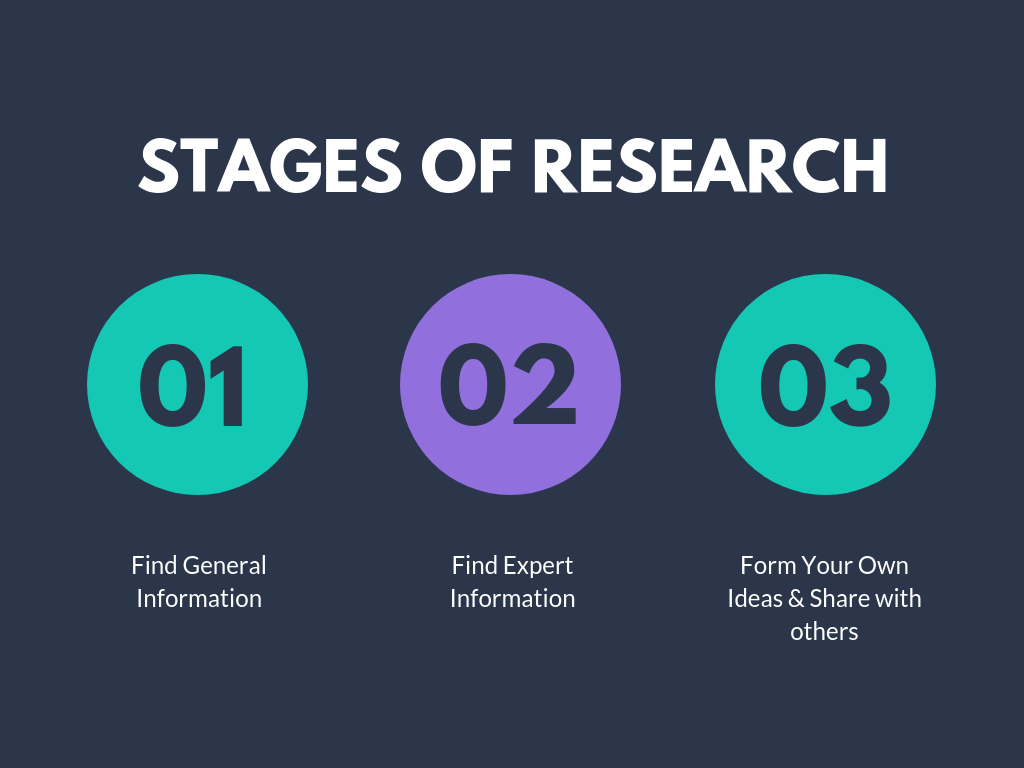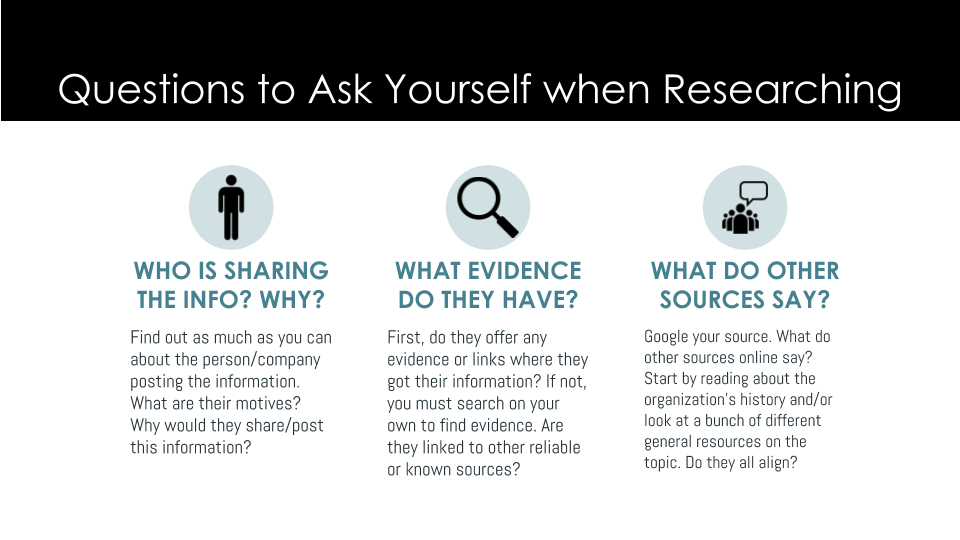Learn how to start, evaluate, and cite your research with the below guides!
|
HOW TO START YOUR RESEARCH
Stage One: Find General Information on Your Topic
After you pick or are given a topic to research, the first step is to find and discover resources that help you better understand your topic. For example, if you decide you want to write about World War II, you should try to find general key points, events, and takeaways. What Resources Should You Use to Do This? At this stage, you may feel most comfortable using Google or Wikipedia to help you learn general information; however, you should not cite these as your sources. Think of them instead as launching pads to more reliable research and information. Use Google or Wikipedia to help you find entry points into the topic and to even narrow down what you want to focus on specifically.
Stage Two: Find Expert Information on Your Topic
After you feel comfortable with your topic and the key events and details, you should then look to see what the experts say about it, or find articles experts deem as reliable information on the subject. Experts are researchers or professors who study, write, and work with other experts to continue to learn more about that topic. For example, if you were working on World War II, you would want to hear mainly from history experts or use a history database with information reviewed by a history expert. What Resources Should You Use to Do This? Experts mainly share their findings in academic journals and books. To find academic journals, you will want to use the databases available through the library. Databases are similar to search engines but are different in that their search results are collected and reviewed by professionals. Look at all the available databases. Is there a database that works best for your topic? If you were researching World War II, you would want to find a database that collects history articles, specifically. You can also use nonfiction and reference books in the library. Stage Three: Form Your Own Ideas
After you find and review reliable sources (academic journals, articles, and books), you should start to think about which articles you agreed with and which ones you did not, or maybe you thought that some of the articles missed something or should have considered something else. Overall, you should form and develop your own thoughts on your topic. What Resources Should You Use to Do This? To form your own ideas, you want to be sure you organize and understand everyone else's. Where do your ideas fit? Write what you think or, in other words, build an argument/thesis about your research topic. Think of it as a conversation. How are you going to respond to what everyone else is saying? Recap
Review the below image for a recap of the stages mentioned above. |
EVALUATING INFORMATION ONLINE
How the Internet Works
If you are just using Google to search, you are missing a TON of information. Google only skims the internet and typically does not include information reviewed by experts. To get expert information, you will have to use databases that find academic journals. Click on the link below to see a diagram of the layers of the internet. Be Skeptical about Information
How can you trust information? Ask yourself these three questions. |


